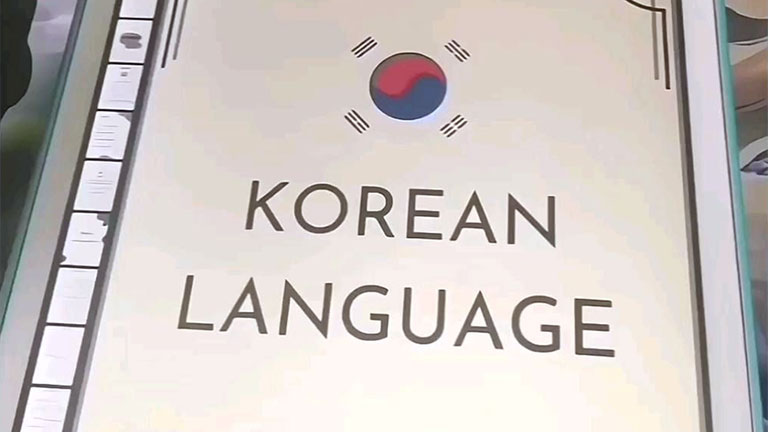
Language translation services continue to rise as the world becomes increasingly interconnected. One language pair that stands out in this global landscape is Korean to English translation.
With South Korea’s booming economy and rich cultural heritage, there is a growing need for accurate and efficient translation between Korean and English.
Read on as we explore the challenges, essential skills, and best practices in mastering Korean to English translation. Whether you are a professional translator or someone interested in learning the art of translation, these tips will help you excel in this field.
The Importance and Demand for Korean to English Translation
The importance of Korean to English translation cannot be overstated. South Korea, with its vibrant economy and thriving entertainment industry, has become a global powerhouse. From K-pop music to Korean dramas, the Hallyu wave has swept across the world, creating a demand for accurate translation of Korean content into English.
Additionally, South Korean companies are expanding their reach globally, requiring high-quality translation of business documents, marketing materials, and technical documents. Consequently, translators proficient in Korean to English are in high demand, making it a lucrative field for language professionals.
Challenges in Korean to English Translation
Translating between Korean and English poses several challenges.
The two languages have different grammatical structures. Korean is a subject-object-verb language, while English follows a subject-verb-object order. This structural difference can make it challenging to convey the intended meaning accurately.
Korea has a unique honorific system, which requires translators to navigate the complexities of formal and informal speech levels.
Cultural references, idioms, and metaphors also add another layer of difficulty, as they may not have direct equivalents in English.
Overcoming these challenges will require an in-depth understanding of both languages and their cultural contexts.
Essential Skills for Korean to English Translation
To excel in Korean to English translation, several essential skills are necessary.
Proficiency in both Korean and English languages is vital. This includes a strong command of grammar, vocabulary, and idiomatic expressions in both languages.
Excellent research skills are essential to ensure accuracy and find appropriate equivalents for cultural references.
Other crucial traits include patience, attention to detail, and the ability to work under pressure.
Finally, being tech-savvy and familiar with translation software and tools can greatly enhance productivity and efficiency.
Tips for Accurate Korean to English Translation
Here are some tips to ensure the accuracy of translating Korean to English:
- Read and understand the entire text before you start the translation process. This will give you a broader context and help you capture the intended meaning accurately.
- Pay attention to the tone and register of the original text. Korean has different levels of formality, which should be reflected in the English translation.
- Use reliable resources such as dictionaries, glossaries, and online translation tools to find appropriate equivalents for cultural references and idiomatic expressions.
- Seek feedback from native speakers or experts in the field to ensure the accuracy and naturalness of your translations.
- Proofread and edit your translations meticulously to eliminate any errors or inconsistencies.
Best Practices for Efficient Korean to English Translation
In addition to accuracy, efficiency is also crucial in Korean to English translation. Here are some best practices to enhance your productivity:
- Utilize translation memory tools to store and reuse previously translated segments. This can speed up the translation process and maintain consistency throughout the document.
- Develop a glossary of commonly used terms and phrases specific to your subject matter. This will save time by providing ready-made translations for frequently encountered words.
- Break down the translation task into manageable chunks and create a schedule for timely completion.
- Collaborate with other translators or language professionals to share resources, insights, and best practices.
- Continuously update your knowledge of both languages and stay informed about the latest trends and terminology in your field of specialization.
Tools and Resources for Korean to English Translation
Numerous tools and resources can help Korean to English translators. Here are some popular ones:
- Translation software can enhance productivity by providing features like translation memory, terminology management, and project management.
- Online dictionaries offer comprehensive translations, example sentences, and additional information for accurate translations.
- Online forums and communities provide resources, networking opportunities, and support from an English translator.
- Language-specific textbooks, grammar guides, and style guides can serve as valuable references to ensure accuracy and consistency each time you translate text into English and other languages.
Common Mistakes to Avoid in Korean to English Translation
While striving for accuracy and efficiency, it is essential to be aware of common mistakes that can occur in the translation process. Some common pitfalls to avoid include:
- Overly literal translations that do not capture the intended meaning or cultural nuances.
- Neglecting to research and understand cultural references, resulting in inaccurate or irrelevant translations.
- Ignoring the tone and register of the original text leads to inappropriate or unnatural-sounding translations.
- Relying solely on machine translation without proper editing and proofreading.
- Failing to update your knowledge of both languages, results in outdated or incorrect translations.
Be mindful of these common mistakes so you can enhance the quality and effectiveness of your Korean to English translations.
Final Thoughts
Mastering Korean to English translation requires a combination of language proficiency, cultural understanding, and translation skills. By recognizing the challenges, developing essential skills, and adhering to best practices, you can excel in this field.
Remember to continuously update your knowledge, seek feedback, and utilize the available tools and online resources from sites like 90 Day Korean.
The ability to translate accurately and effectively between Korean and English opens up a world of opportunities. So, start your journey today and learn Korean as the demand for Korean to English translation continues to grow!




